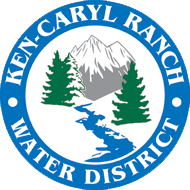
Disposing of fats, oils, and grease (FOG) in the public sewer system can contribute to sewer blockages, sanitary sewer overflows, and backups.

The Ken-Caryl Ranch Water and Sanitation District works closely with South Platte Renew to ensure that FOG along with petroleum oil, grease and sand (POGS) do not impact our sanitary sewer system. The improper disposal of these materials can cause sewage overflows, clogs and backups.
From the Ken-Caryl Ranch Water and Sanitation District’s Rules and Regulations:
2.3.5 Grease, Oil and Sand Interceptors. Grease, oil and sand interceptors shall be designed, installed and maintained by the Customer at the Customer’s expense as set forth in the Wastewater System Specifications or when, in the opinion of the District Manager, they are necessary for the proper removal of wastes containing grease, oils or sand. All interceptors shall be located as to be readily available and accessible for cleaning and inspection. Grease and oil interceptors shall be in an accessible location for maintenance and inspection and shall be constructed of impervious materials capable of withstanding abrupt and extreme changes in temperature. They shall be water tight, and, if required by Littleton, gas tight. Where installed, all grease, oil and sand interceptors shall be maintained in continually efficient operation at all times by the Customer at the Customer’s expense and shall be subject to regular inspection by District personnel to ensure proper maintenance and operation.
Program Information
(from the South Platte Renew FOG Policy)
Service Regularly
Grease Interceptors shall be serviced at a minimum of every 90 days or more frequently as needed to ensure that the total accumulation of FOG and settled solids does not exceed 25% of the interceptor’s total capacity
Customer Must Maintain
Customers are responsible for all maintenance of Grease Interceptors.
Registered Removal Companies
Customers should ensure that companies used for the removal and transportation of grease waster are properly registers with the Colorado Department of Public Health and Environment.
Best Management Practices
In order to prevent fats, oils, and grease from becoming sewer blockages, backups, and overflows, best management practices include:
- Use drain screens
- Dispose of food waste in the trash
- Dry-wipe all cookware
- Use a grease receptacle
- Keep cleaning products away from drains

